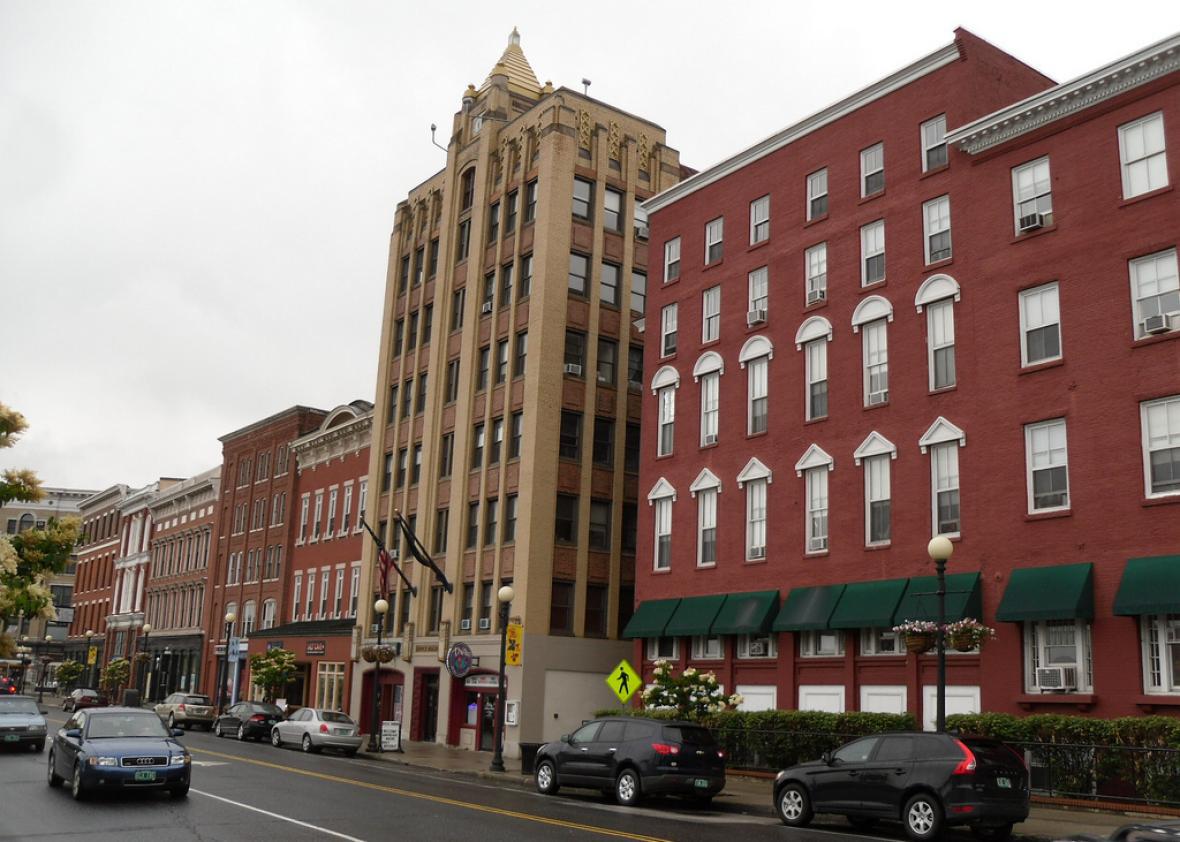For the past year, the national drama over refugees has played out in miniature in the small city of Rutland, nestled in Vermont’s Green Mountains.
The mayor, Christopher Louras, hatched a plan in 2015 for Rutland to settle 100 refugees from Syria and Iraq. The initiative was publicly announced last March, and in September, Rutland was granted State Department approval. It was the right thing to do, supporters said. But Louras, a five-term mayor who was first elected as a Republican but is now an independent, made an economic case for the program.
“The benefits, economically and culturally, that we will recognize is exactly what the community needs at this time,” he told the Boston Globe in May. “As much as I want to say it’s for compassionate reasons, I realize that there is not a vibrant, growing, successful community in the country right now that is not embracing new Americans.”
On Tuesday, the backlash swept Louras from office. His opponent, city Alderman David Allaire, strongly criticized the secrecy surrounding the town’s decision to accept refugees. Announcing his candidacy in December, Allaire stressed that he was not anti-refugee. “I’m sure if this had been handled differently, you would not see the divide you see in this community right now,” he said at the time. “We are a thoughtful, helpful community.”
But the opposition group that supported Allaire, Rutland First, was more evidently against any refugee deal. In addition to local politics, its Facebook page shares content like the Sweden refugee video that prompted Donald Trump’s famous “last night in Sweden” outburst.
On Wednesday morning, in conversation with the VTDigger, a Vermont news site, Louras said he saw his 51–34 defeat—“a good old-fashioned political drubbing”—as a judgment on the refugee project. “As much as I said during the campaign that this was not a referendum on refugee resettlement … hindsight, looking back at it, absolutely a referendum on refugee resettlement. I think it just demonstrates that Rutland is still, as I said during the campaign and even before the campaign, Rutland is still a microcosm for the national conversation on refugees and immigration. I think the vote reflects that.”
The city of Rutland, which went for Clinton by about 13 points, is 96 percent white. Its population is both aging and shrinking—down to 15,824 in the latest American Community Survey estimate from more than 19,000 in 1970. In this, too, it represents America: Cities and towns without immigrants are shrinking. Those that take them in are growing. This is true even of the quintessential Sun Belt boomtown, Houston, whose white population has dropped by 300,000 residents since 1980, even as total population grew by 500,000. It is certainly true of older cities like Chicago, Philadelphia, and New York.
And it’s true of small towns, which increasingly face a choice: stay white and wither, or get diverse and grow.
Rutland is taking the former path.
